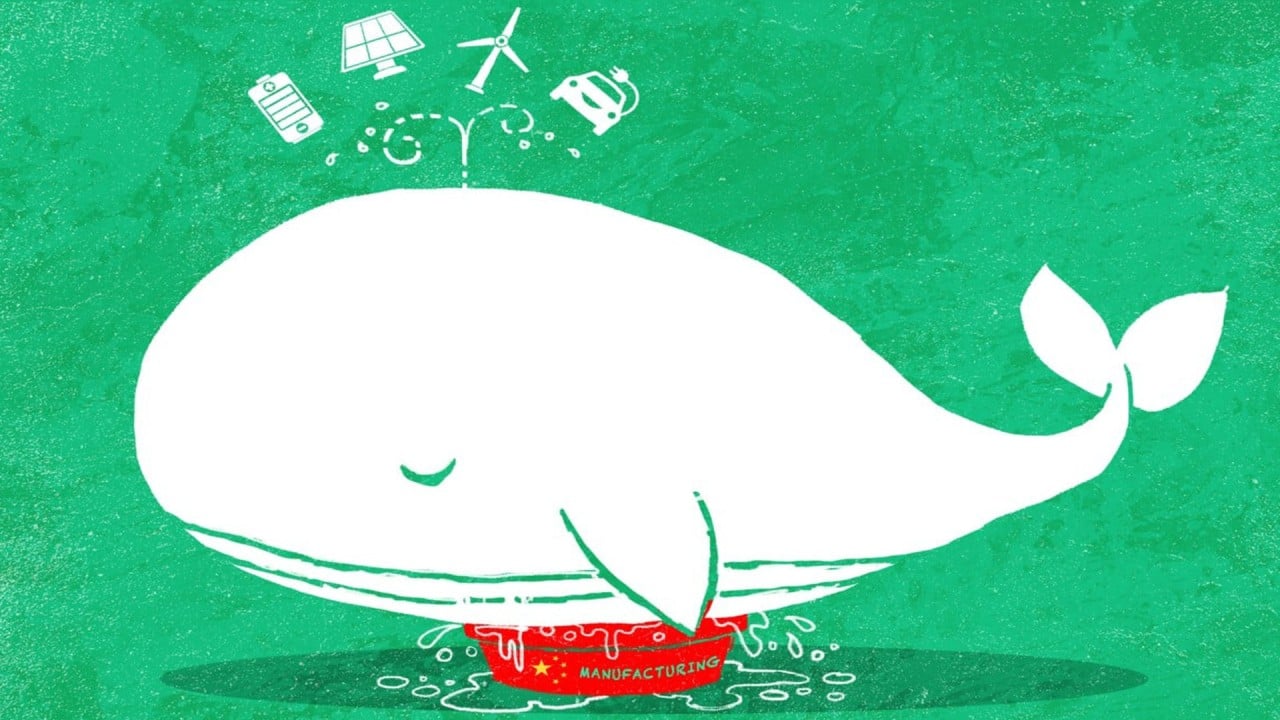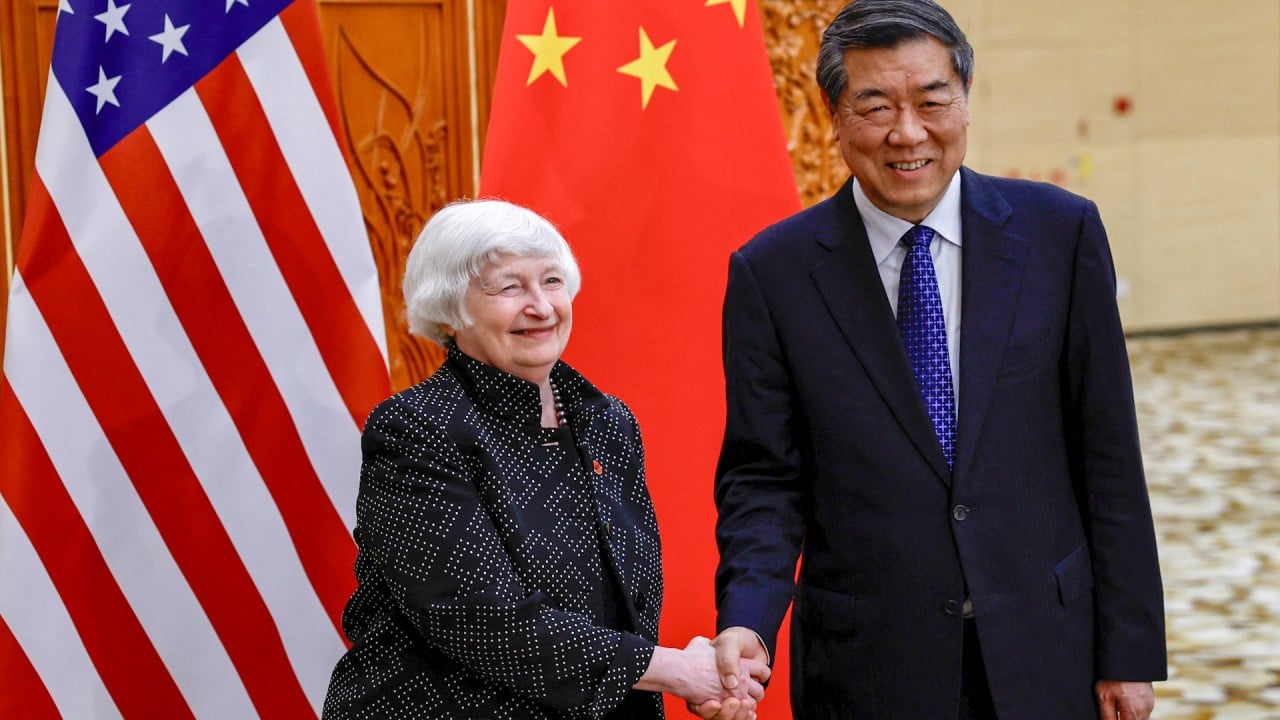
Overcapacity or ‘over anxiety’? China hits back at Western claims of dumping
- State news agency rejects allegations that Chinese EV firms are exporting a glut of electric vehicles
- Accusations reflect anxieties abroad about critics’ own industrial development, it says
“This so-called overcapacity is a sham – ‘over anxiety’ is what it really is,” it said, saying the United States and its allies were using such accusations to contain China’s competitive sectors out of fears for their own industrial development.
China dominates the world market in EVs, solar panels and lithium batteries, all technologies at the centre of a transition to a greener future.
Beijing regards these industries as new export pillars with enough growth potential to help its economy shift to advanced manufacturing and away from the mass production of traditional, low-value added items such as apparel and home appliances.
Amid an overall export slump, China exported over 1 trillion yuan (US$138 billion) worth of products in these three categories last year, amounting to growth of about 30 per cent from 2022, official data showed.
Anti-subsidy investigations into Chinese EV and wind turbine manufacturers are under way in the European Union while the US also initiated Section 301 probe into China’s maritime, logistics and shipbuilding sectors, areas in which China has gained leverage in the recent years.
The issues have been a regular point of friction in meetings with Chinese officials and their counterparts in Europe and the West.
And, as Blinken’s visit wrapped up on Friday, Yang Tao, head of the Chinese foreign ministry’s North American and Oceanian affairs department, said that accusing China of excessive industrial production and exports was “another example of the US engaging in protectionism and suppressing China’s development”.
“I’m afraid it’s not China’s production capacity that’s ‘excess’, but the US’ anxiety,” he said.
The message from Xinhua commentary was echoed on Sunday by Economic Daily, which claimed that the accusations of overcapacity were meant as “a new excuse” for protectionism.
It said China exported a low proportion of its EV production. “The export prices are also in line with market rules, and there is no ‘dumping’ issue at all,” it said.
The article argued that China’s new energy industry was able to export so much because it was highly efficient rather than producing too much.
For example, it said, China’s EV sector was already operating at close to full capacity. BYD, Tesla’s Shanghai factory and SAIC were running at about 80 per cent, compared with just over 20 per cent for South Korea firms Hyundai and Kia, it said.
“In recent years, the capacity utilisation rate of China’s leading new energy car companies has been much higher than the industry average.”



